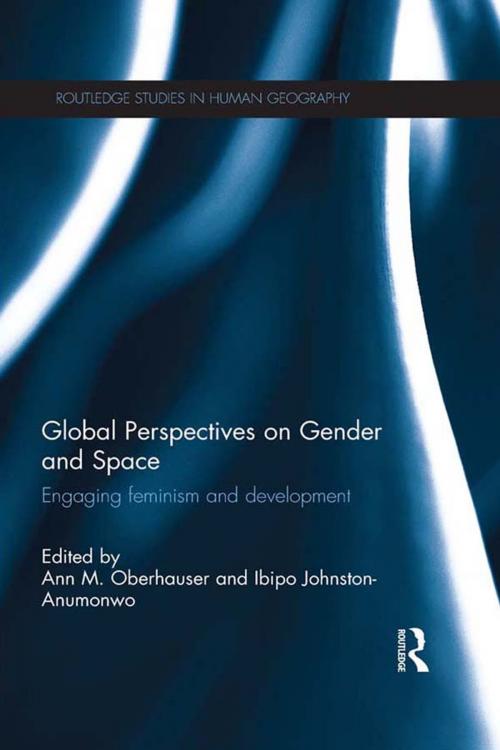Global Perspectives on Gender and Space
Engaging Feminism and Development
Nonfiction, Science & Nature, Science, Earth Sciences, Geography, Social & Cultural Studies, Social Science, Human Geography| Author: | ISBN: | 9781135125257 | |
| Publisher: | Taylor and Francis | Publication: | March 21, 2014 |
| Imprint: | Routledge | Language: | English |
| Author: | |
| ISBN: | 9781135125257 |
| Publisher: | Taylor and Francis |
| Publication: | March 21, 2014 |
| Imprint: | Routledge |
| Language: | English |
Feminism has re-shaped the way we think about equality, power relations and social change. Recent feminist scholarship has provided new theoretical frameworks, methodologies and empirical analyses of how gender and feminism are situated within the development process. Global Perspectives on Gender and Space: Engaging Feminism and Development draws upon this framework to explore the effects of globalization on development in diverse geographical contexts. It explores how women’s and men’s lives are gendered in specific spaces as well as across multiple landscapes.
Traveling from South Asia to sub-Saharan Africa to North America and the Caribbean, the contributions illustrate the link between gender and global development, including economic livelihoods, policy measures and environmental change. Divided into three sections*, Global Perspectives on Gender and Space* showcases the following issues: One) the impact of neoliberal policies on transnational migration, public services and microfinance programs; Two) feminist and participatory methodologies employed in the evaluation of land use, women’s cooperatives and liberation struggles and Three) gendered approaches to climate change, natural disasters and conservation the global South. A feminist lens is the common thread throughout these sections that weaves gender into the very fabric of everyday life, providing a common link between varied spaces around the globe by mapping gendered patterns of power and social change.
This timely volume provides geographic comparisons and case studies to give empirically informed insights on processes and practices relevant to feminism and development. It illustrates ways to empower individuals and communities through transnational struggles and grassroots organizations, while emphasizing human rights and gender equity, and will be of interest to those studying Geography, Development Studies, International Relations and Gender Studies.
Feminism has re-shaped the way we think about equality, power relations and social change. Recent feminist scholarship has provided new theoretical frameworks, methodologies and empirical analyses of how gender and feminism are situated within the development process. Global Perspectives on Gender and Space: Engaging Feminism and Development draws upon this framework to explore the effects of globalization on development in diverse geographical contexts. It explores how women’s and men’s lives are gendered in specific spaces as well as across multiple landscapes.
Traveling from South Asia to sub-Saharan Africa to North America and the Caribbean, the contributions illustrate the link between gender and global development, including economic livelihoods, policy measures and environmental change. Divided into three sections*, Global Perspectives on Gender and Space* showcases the following issues: One) the impact of neoliberal policies on transnational migration, public services and microfinance programs; Two) feminist and participatory methodologies employed in the evaluation of land use, women’s cooperatives and liberation struggles and Three) gendered approaches to climate change, natural disasters and conservation the global South. A feminist lens is the common thread throughout these sections that weaves gender into the very fabric of everyday life, providing a common link between varied spaces around the globe by mapping gendered patterns of power and social change.
This timely volume provides geographic comparisons and case studies to give empirically informed insights on processes and practices relevant to feminism and development. It illustrates ways to empower individuals and communities through transnational struggles and grassroots organizations, while emphasizing human rights and gender equity, and will be of interest to those studying Geography, Development Studies, International Relations and Gender Studies.















